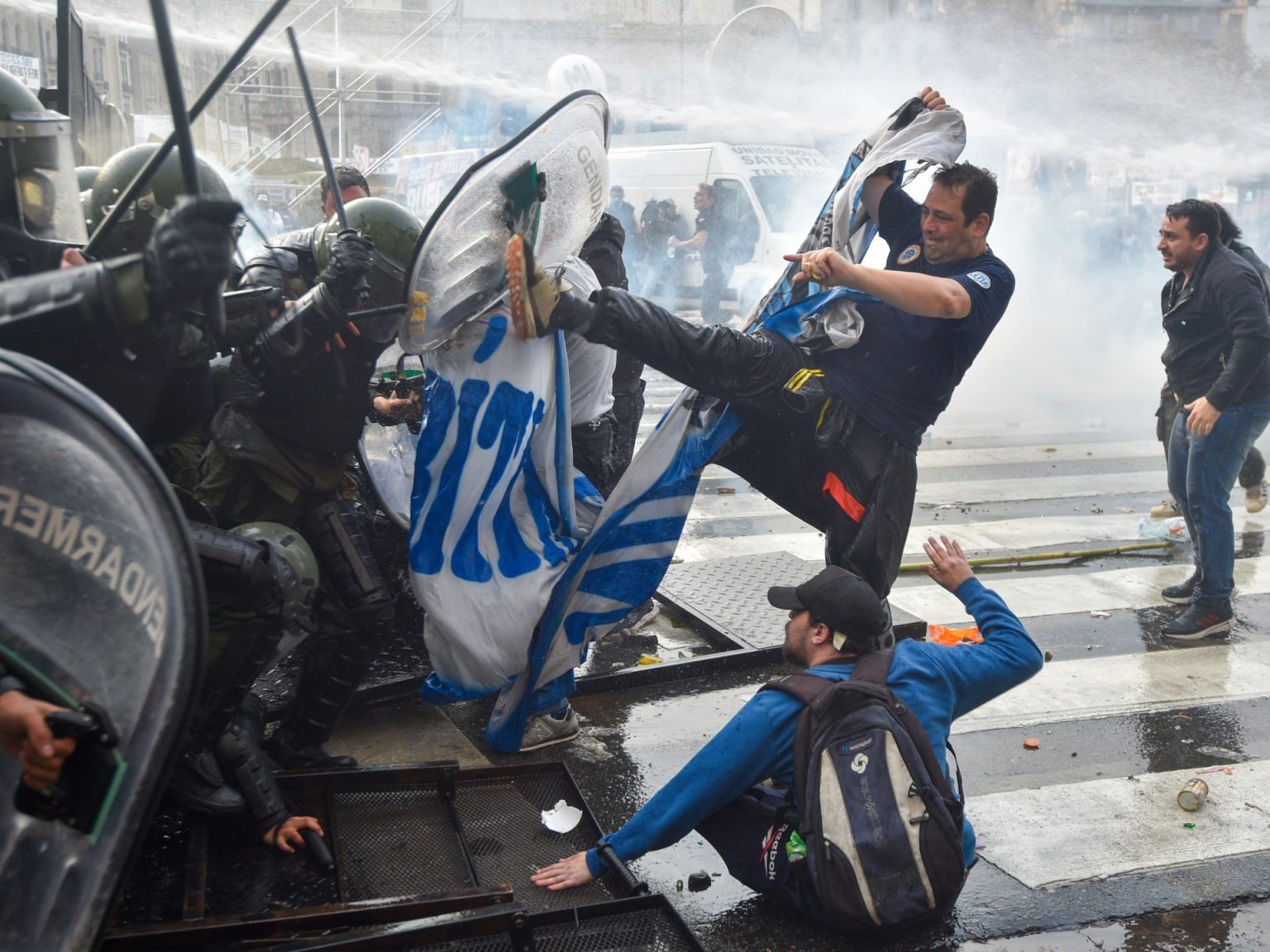Massive protests erupted in Argentina as citizens expressed their anger and frustration over President Milei’s proposed economic reform bill. Riot police were called in to disperse the crowds using rubber bullets, tear gas, and water cannons. The bill, which aims to make significant changes to the country’s economic policies, has faced backlash from various sectors of society. As the bill moves closer to becoming law, tensions continue to run high in Argentina.
President Milei’s economic reform bill has sparked controversy and division among the Argentine population. While some support the proposed changes, others vehemently oppose them. The bill seeks to address economic challenges facing the country, but critics argue that it will only benefit the wealthy and worsen inequality. The widespread protests highlight the deep-seated dissatisfaction and mistrust many citizens have towards the government’s economic policies.
The use of excessive force by riot police to quell the demonstrations has raised concerns about human rights violations in Argentina. Reports of injuries and arrests among protesters have further fueled tensions and led to calls for accountability. The government’s heavy-handed response to the protests has drawn criticism both domestically and internationally, with many calling for a peaceful resolution to the ongoing crisis. The use of rubber bullets, tear gas, and water cannons has only served to escalate the situation and inflame public outrage.
As the economic reform bill moves closer to becoming law, the government faces a critical test of its ability to address the concerns and grievances of its citizens. The widespread protests signal a growing discontent with the status quo and a demand for real change. President Milei must navigate these turbulent waters carefully to avoid further destabilizing the country. The future of Argentina’s economy and political stability hangs in the balance as the government and protesters continue to clash over the proposed reforms.
The protests in Argentina have garnered international attention and support, with many countries and organizations expressing solidarity with the demonstrators. The use of violence against peaceful protesters has drawn condemnation from human rights groups and foreign governments. The pressure is mounting on President Milei to listen to the voices of the people and address their concerns in a transparent and inclusive manner. The world is watching closely as Argentina grapples with this political and economic crisis.
In conclusion, the protests in Argentina against President Milei’s economic reform bill reflect the deep-seated divisions and challenges facing the country. The use of excessive force by riot police has only served to exacerbate tensions and fuel public outrage. As the bill moves closer to being signed into law, the government must prioritize dialogue and engagement with its citizens to address their concerns and build trust. The future of Argentina’s economy and political stability hinges on the government’s ability to navigate this crisis and enact reforms that benefit all its citizens.


